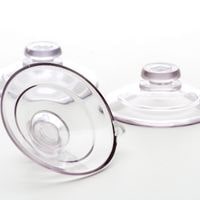Ants In Potted Plants
Ants in potted plants. Some people consider ants to be pests, while some consider them to be helpful insects.
Ants can cause damage to your pot plants, so it is important to know if the ants in your potted plants are harmful or not.
To find this out and get a solution for the problem of ants in potted plants, read on.
Ants In Potted Plants

The best way to get rid of ant infestations in potted plants is by using bait along with insecticidal soap.
Ants have nests outside their homes, so be sure to cast a wide net and bait the surrounding areas away from your plant.
Here are some other ways to avoid and get rid of ants in potted plants:
Remove Pests From The Pot
One solution is to spray a mixture of dish soap and water or a combination of white vinegar and water.
Commercial suppliers recommend spraying a mixture of 100 ml/4 oz of dish soap diluted with two litres of water on plants that are affected by aphids and mealybugs.
Why do they suggest using white vinegar? Because it’s acidic, which changes the pH levels in soil, seriously damaging the honeydew-making pests’ growth.
Put water in the pot to moisten the soil
Dry soil in plant pots is like white colored stretchpants. If you haven’t washed your pants for a few days, then you really need to do so. But don’t throw them into the washing machine and overload the water meter.
Pasteurized soil should be used instead of potted soil
Your plants need fresh soil to stay vibrant and healthy. Over time, their potting soil can dry out and start to drain badly.
Take care of it every few months by giving your potted plants a fresh boost with our home-grown, never-from-concentrate secret sauce.
If the color starts to look off on top, scrape it away and add more of our potent plant food to the mix for bigger blooms!
Better yet we’ve got this one handled for you – replace those old soils with our special Vitamin P boosts to get your plants’ root systems nice and strong.
Be sure to keep up the good work because ants will start to snack on any exposed roots in the process! Not only do you get healthier plants, but stronger roots make sure they won’t topple or break over time either.
Spray the soil and plants with ant spray
Spray aphid spray or blackfly spray or tomato plant bug spray on the foraging ants. When you kill the insects that are harming your plants, you save money on fertilizer.
Place ant baits near your plant pots
Ant bait traps resemble a food source for the specific species of ants that come into your garden or have infiltrated inside your home.
You must rule out whether you have a carpenter ant infestation or a mainly food-based invasion with multiple types of ant species.
Many ant baits are available today, with some containing malicious ingredients that kill ants on contact, while still others contain pheromones in order to lure ants to their death.
If you want to avoid toxic and potentially harmful chemicals in your home, consider using non-toxic insecticide or pheromone formulas .
What Is The Effect Of Ants On Potted Plants?
Ants are harmless to potted plants. Some of these tiny creatures are even helpful. For example, they control pests that prey on plant roots.
They also bring living organisms like fungi and other microorganisms deep into the soil, where they break down natural nutrients that plants thrive on.
Why tunneling? Well, these tunnels can harm seedlings & tiny plants with their very tender root systems.
Ants like to create shelter for themselves under the soil; this might mean hemming in vulnerable young roots or damaging older roots with fragile surface structures like bark or lichen thorns.
Is it true that ants eat plant roots?
Decomposing roots are a food source for ants. Rarely have nests been found near potted plants, or tree stumps and fallen trees because there will not be any plant matter present in the soil to feed their colonies.
Most types of ants that like to hang around vegetation prefer the wet and dark conditions of decaying organic matter, such as compost piles for the extra greenery that brings about nutrients to the colony.
Other than that variety is really all you can worry about in terms of anti-pest control measures.
It is unlikely, but interesting nonetheless to note what parts of an average colony’s diet consist mostly of macronutrients versus micronutrients.
Conclusion
In general, ants in soil beds and potted plants are good because they help aerate the soil. This makes root access to more nutrients easier by making tunnels inside the ground. In turn, it allows the seedlings to grow better. While they’re digging tunnels to make way for the roots of the plants, ants must be careful not to come into contact with the plant’s roots as this can cause them damage.
Every once in a while there are species of ants that are hostile to plants for some reason and may even kill them. However, mature plants usually don’t come in contact with these harmful types of ants so it is advisable not to worry about having an ant problem when tending young plants.
Related Guides






